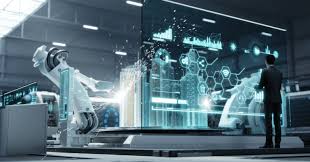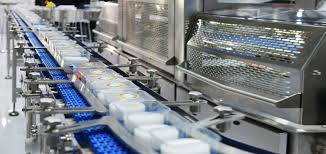Factory automation has transformed the manufacturing landscape, integrating advanced technologies to streamline production processes, reduce errors, and enhance efficiency. In the face of increasing global competition and demand for high-quality products, automation stands as a pivotal innovation driving industrial success. This article delves into the key aspects of factory automation, its benefits, challenges, and the trends shaping its evolution.
Understanding Factory Automation

Factory automation refers to the implementation of automated systems and machinery to perform manufacturing tasks with minimal human intervention. These systems include robotics, sensors, artificial intelligence (AI), and control systems, all designed to optimize workflows and ensure consistency in production.
The primary goal of factory automation is to reduce manual labor, improve accuracy, and achieve higher output rates. By automating repetitive and high-precision tasks, factories can maintain consistent quality standards while lowering operational costs.
Key Components of Factory Automation
The effectiveness of factory automation lies in its integration of various components, each playing a critical role in the overall process:
- Robotics: Robots are the cornerstone of factory automation. They perform tasks such as assembly, welding, painting, and material handling with unmatched precision and speed.
- Sensors and IoT Devices: Sensors monitor various parameters, such as temperature, pressure, and vibration, ensuring that the production environment remains within optimal conditions. The Internet of Things (IoT) allows these devices to communicate, enabling real-time monitoring and data analysis.
- Artificial Intelligence and Machine Learning: AI enhances decision-making by analyzing vast amounts of data. Machine learning algorithms predict equipment failures, optimize production schedules, and improve product designs.
- Control Systems: Programmable Logic Controllers (PLCs) and Distributed Control Systems (DCS) manage and control automated processes, ensuring synchronization and efficiency.
Benefits of Factory Automation
The adoption of automation in factories yields numerous benefits, making it an indispensable tool for modern manufacturing:
- Increased Productivity: Automated systems operate continuously without the need for breaks, leading to higher production rates and reduced downtime.
- Enhanced Quality: Automation ensures consistency in product quality, minimizing defects and waste. Advanced sensors and AI systems detect and correct errors in real time.
- Cost Savings: While the initial investment in automation is significant, long-term savings are achieved through reduced labor costs, lower material waste, and improved energy efficiency.
- Worker Safety: By taking over dangerous and physically demanding tasks, automation reduces workplace injuries and ensures a safer environment for employees.
- Flexibility: Modern automated systems can be reprogrammed and reconfigured for different tasks, making factories more adaptable to market changes.
Challenges in Implementing Factory Automation

Despite its advantages, factory automation presents several challenges that manufacturers must address to realize its full potential:
- High Initial Investment: The cost of purchasing and integrating automation technologies can be prohibitive for small and medium-sized enterprises (SMEs).
- Skill Gap: The shift to automated systems requires a workforce with specialized skills in programming, maintenance, and data analysis. Training and upskilling employees is essential.
- Integration Complexity: Integrating automation into existing systems and workflows can be complex, requiring careful planning and execution.
- Cybersecurity Risks: As automation systems rely on interconnected devices, they become vulnerable to cyberattacks. Ensuring robust security measures is critical to protect sensitive data and operations.
Trends Shaping the Future of Factory Automation
As technology continues to advance, several trends are shaping the future of factory automation, offering even greater possibilities for manufacturers:
- Collaborative Robots (Cobots): Cobots work alongside humans, combining the precision of robots with the flexibility of human workers. They are ideal for tasks requiring dexterity and adaptability.
- Smart Factories: The concept of smart factories revolves around the integration of IoT, AI, and cloud computing to create highly interconnected and intelligent production environments.
- Additive Manufacturing: Also known as 3D printing, additive manufacturing enables the production of complex designs with minimal material waste, complementing automated systems.
- Predictive Maintenance: Advanced AI algorithms predict equipment failures before they occur, allowing timely maintenance and reducing downtime.
- Sustainability Initiatives: Automation is playing a crucial role in sustainable manufacturing, optimizing energy consumption and reducing environmental impact through efficient processes.
The Role of Artificial Intelligence in Factory Automation

AI is revolutionizing factory automation by enabling pg slot smarter decision-making and process optimization. From predictive analytics to autonomous operations, AI enhances the capabilities of automated systems, making them more efficient and adaptable.
Machine learning models analyze historical data to identify patterns and predict future trends. For instance, AI can optimize supply chain operations by forecasting demand, reducing inventory costs, and ensuring timely delivery.
Additionally, AI-powered vision systems enable robots to identify objects, assess product quality, and adapt to varying conditions. This level of intelligence enhances the accuracy and reliability of automated systems.
Factory Automation Across Industries
Factory automation is not confined to any single industry; its applications are widespread and diverse:
- Automotive: Automation has revolutionized the automotive industry, from assembly lines to quality control. Robots handle tasks like welding, painting, and part installation with precision.
- Electronics: Automated systems are essential in the electronics industry, where intricate components require high levels of accuracy during assembly.
- Food and Beverage: Automation ensures hygiene and consistency in food production, from sorting and packaging to quality checks.
- Pharmaceuticals: In the pharmaceutical sector, automation enhances precision in drug manufacturing and packaging, ensuring compliance with stringent regulations.
- Textiles: Automated looms and sewing machines have significantly increased productivity and reduced waste in the textile industry.
Overcoming Barriers to Factory Automation
To fully harness the benefits of automation, manufacturers must address the challenges associated with its implementation:
- Investing in Scalable Solutions: Choosing modular and scalable automation solutions allows businesses to grow their systems incrementally, reducing upfront costs.
- Fostering Collaboration: Partnerships between manufacturers, technology providers, and governments can facilitate access to funding, training, and resources.
- Prioritizing Cybersecurity: Implementing robust cybersecurity protocols protects automation systems from threats, ensuring data integrity and operational continuity.
The Human Element in Automated Factories
While factory automation reduces reliance on manual labor, it does not eliminate the need for human involvement. Skilled workers are essential for programming, maintaining, and supervising automated systems. Moreover, humans bring creativity and problem-solving abilities that machines cannot replicate.
The future of factory automation lies in achieving a harmonious balance between human expertise and technological capabilities. By embracing this synergy, manufacturers can unlock new levels of efficiency and innovation.
Conclusion
Factory automation is at the forefront of industrial transformation, driving efficiency, quality, and sustainability in manufacturing. Despite the challenges, its benefits far outweigh the drawbacks, making it an indispensable tool for businesses aiming to remain competitive in a rapidly evolving market.
As technology continues to evolve, the potential of factory automation will expand, paving the way for smarter, more efficient production systems. By embracing innovation and addressing implementation challenges, manufacturers can shape a future where automation empowers industries to achieve unprecedented success.









